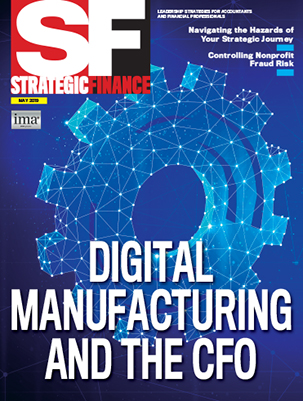Mike also is the author of The Algorithmic Leader: How to Be Smart When Machines Are Smarter Than You and Futuretainment: Yesterday the World Changed, Now It’s Your Turn. He previously founded Jupiter Research in Australia and has held senior strategy roles at News Corporation in the Asia-Pacific Region.
SF: Tomorrow works on setting up companies to succeed in the 21st Century. What are businesses missing, and how do you help them move forward?
Mike Walsh: Companies are platforms for making decisions. In my view, the key to 21st Century success is thinking about how you can successfully combine culture and technology to accelerate the quantity and quality of those decisions. Through my company, Tomorrow, a big part of what I help leaders do is look at their organizational design, the way that their people work and collaborate, and their hierarchy of decision making to help them identify the pivot points where AI, algorithms, and automation can drive their digital transformation.
SF: Automation and AI continue to shape how businesses are run today and how they’re preparing for the future. How do you see professionals working with this new technology and complementing the work they’re already doing?
MW: There’s an assumption that if you can automate part of a job, at some point that entire job will go away. In fact, the opposite is often true. Whether it’s the use of algorithms to identify fraud in the audit process or the use of software in discovery in legal cases, leveraging technology not only reduces routine, transactional work, but, by providing cost-effective access to your basic services, can lead clients to ask their advisors to focus on more interesting, strategic questions.
Although technologies like robotic process automation are already optimizing easily identifiable and repeatable processes, professionals will add a lot of value in the near future by working closely with machine-learning algorithms, incorporating their recommendations to augment their own analysis, and training the algorithms to become more effective. This is essential because as these learning algorithms improve, they will become the intellectual property of a company.
SF: What does it take for someone to become a “smart leader”?
MW: In my book The Algorithmic Leader, I’ve synthesized years of research and interviews with some of the world’s top business leaders, AI pioneers, and data scientists into a set of 10 principles about what it takes to succeed in the algorithmic age. The bottom line is this: You need to take on the best of both humans and machines. In other words, you need not only a deep understanding of human complexity (how to motivate people, empathize with clients, and understand nuanced contexts), but also a flair for computational thinking (or the ability to take a structured approach to decision making and problem solving that allows you to leverage data and technology to be more effective).
SF: How will data mining and the digital transformation influence disruptive innovation?
MW: Disruptive innovation is closely linked to digital transformation. In my view, the real winners of the 21st Century won’t be new start-ups, but traditional organizations that have the capability and resources to leverage AI to transform themselves and, in doing so, reshape their industries. The reason for this is data. Choosing the right AI model isn’t sufficient. The hard part is getting the right kind of data and having the expertise to operationalize that AI model such that it can increase the velocity of good decisions that your organization makes, whether it be the optimization of your supply chain or the asset classes that you invest in. AI will be the major driver of disruptive innovation in the near future.
SF: If a company is innovating successfully, how can this innovation shape the organization’s culture and work?
MW: The two concepts are closely related. Not only is it easier to attract top talent to a company with a strong focus on innovation, it’s almost impossible for a company to embrace innovation without a culture that encourages agility, adaptability, and creative thinking. Having teams that know agile methodology is one thing, but it’s more important to hire people that are agile-minded. It’s hard to know the exact skills that will be needed in the next few years given the rapid changes in technology, but one thing is certain: The most valuable people will be those capable of making good decisions in ambiguous conditions.
To hear more from Mike Walsh and other exciting keynote speakers, join us at IMA’s Annual Conference & Expo (ACE2019) June 15-19, 2019, in San Diego, Calif. The Conference features eight job-relevant specialty tracks and more than 75 continuing professional education sessions focused on key management accounting practice areas. For more information, visit www.imaconference.org.

May 2019



